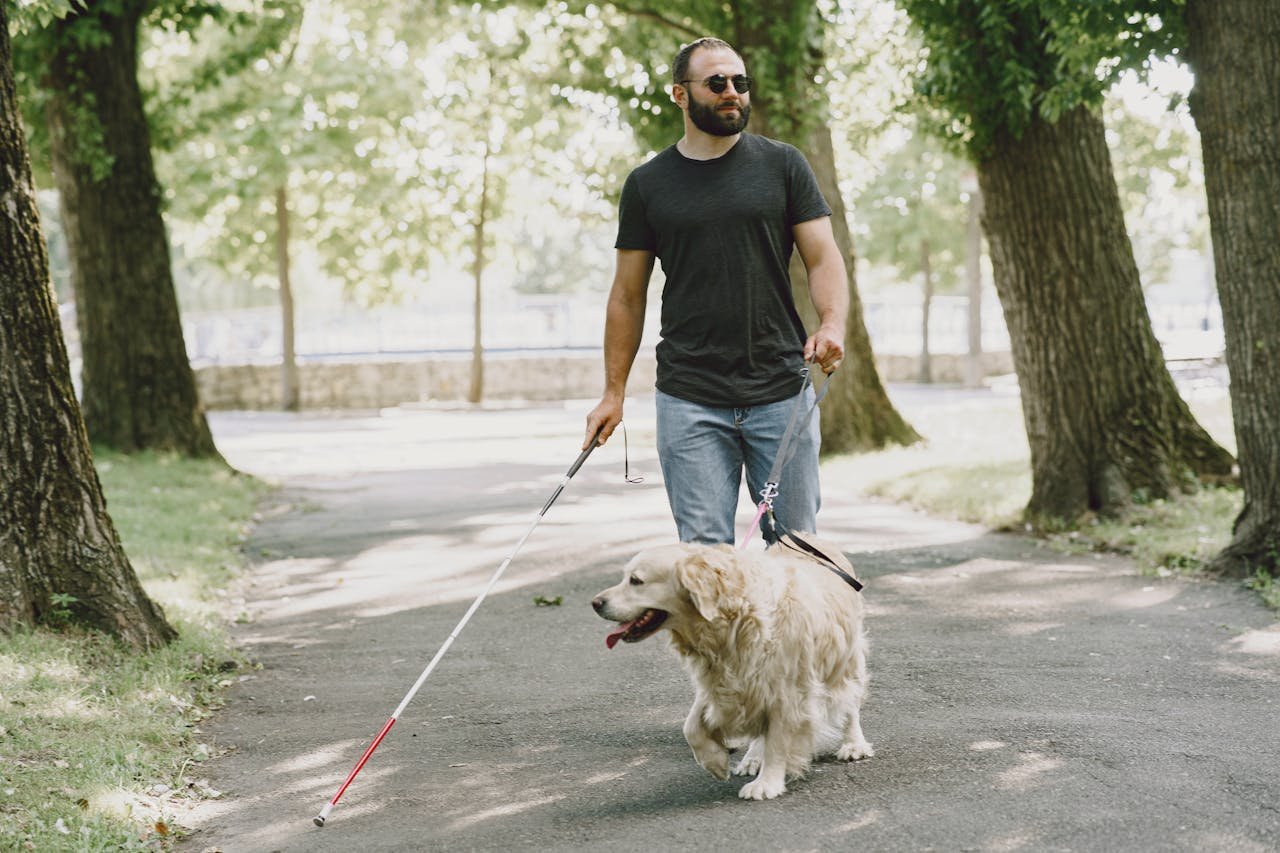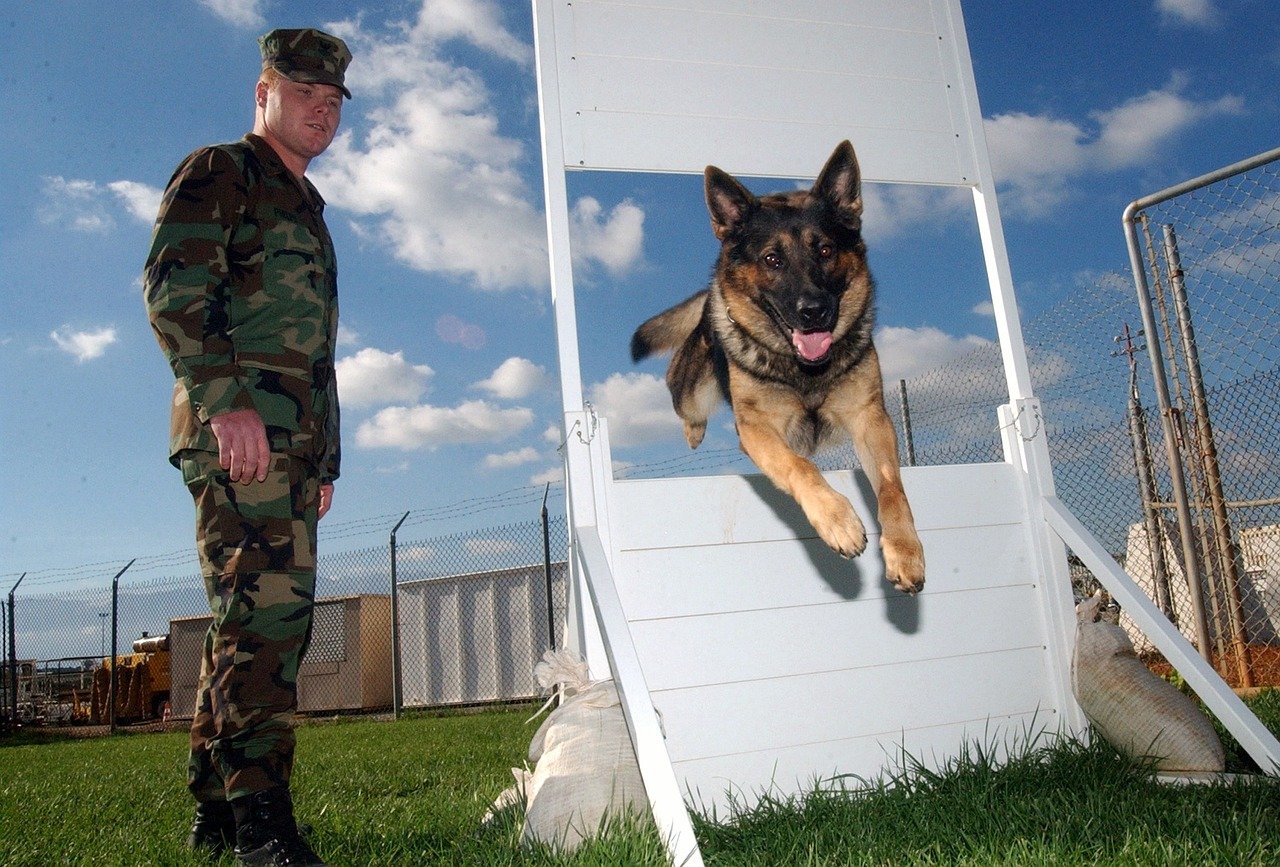Golden Retriever vs German Shepherd: Which Makes the Best Service Dog?
The Battle of the Breeds
Have you ever wondered which breed truly reigns supreme as the ultimate service dog—Golden Retriever or German Shepherd? They’re both iconic, brilliant, and hardworking, but they bring vastly different strengths to the table. Whether it’s guiding someone with vision impairment, assisting veterans with PTSD, or helping kids with autism, service dogs play life-changing roles. But not all dogs are built for the job.
So, how do Golden Retrievers stack up against German Shepherds? While Goldens are known for their gentle, people-pleasing nature, German Shepherds bring their legendary focus and loyalty to the mix. But here’s the twist: choosing the best service dog isn’t just about the breed; it’s about the fit.
In this blog, we’ll dive into what makes each breed shine (and struggle) as a service dog. Along the way, we’ll help you figure out which might be the better choice for your needs—or simply satisfy your curiosity! Let’s settle this friendly rivalry once and for all.
What Makes a Great Service Dog?
Before we get into the nitty-gritty of the breeds, let’s explore the core qualities every service dog needs. Whether it’s a Golden Retriever or a German Shepherd, the foundation of a great service dog lies in their temperament, trainability, and adaptability.
Key Traits of Service Dogs
A top-tier service dog should:
- Be Intelligent: Service dogs must learn complex tasks, such as retrieving medication, opening doors, or guiding their owner through crowds.
- Stay Calm Under Pressure: Crowded public spaces, loud noises, and unexpected distractions should never faze a service dog.
- Be People-Oriented: The best service dogs thrive on human interaction and are eager to work closely with their handlers.
- Have Excellent Health: Service dogs often work long hours, so good physical health and stamina are critical.
- Adapt Easily: Whether in a bustling airport or a quiet home, service dogs must be comfortable and confident in any environment.
Both Golden Retrievers and German Shepherds excel in many of these areas, but the devil is in the details. Let’s see how each breed measures up!
Golden Retrievers as Service Dogs

Golden Retrievers are arguably the poster pups of service dogs, and it’s easy to see why. With their golden coats and friendly smiles, they seem born to help people. But beyond their charm lies a dog with real substance.
Strengths of Golden Retrievers
- Unbeatable Friendliness: Goldens are famously loving and gentle. They’re fantastic for handlers who need emotional support or constant reassurance.
- High Trainability: These dogs love to learn! Golden Retrievers are eager to please, making them fast learners for tasks like fetching items or guiding.
- Adaptable to Various Roles: Goldens excel in everything from therapy work to mobility assistance, making them versatile service companions.
- Calm and Patient: Golden Retrievers are naturally patient, which is why they’re often seen assisting children or people with anxiety disorders.
- Non-Aggressive: Their mild temperament means they’re rarely confrontational, an essential quality for service dogs.
Fun fact: According to the American Kennel Club (AKC), Golden Retrievers consistently rank in the top 5 most popular dog breeds in the U.S.—and for good reason!
Challenges of Golden Retrievers
However, Goldens aren’t without their quirks:
- Energy Levels: Golden Retrievers are active dogs that require plenty of exercise. A handler with limited mobility may find it challenging to meet their energy needs.
- Shedding: Their long, dense coats shed quite a bit, which may be problematic for individuals with allergies.
- Attention-Seeking: Sometimes, their love for humans can border on clinginess, which may not suit handlers who need their dog to work independently.
German Shepherds as Service Dogs

German Shepherds are the ultimate working dogs. Known for their focus, loyalty, and courage, they’re the canine equivalent of an overachieving honor student. Let’s unpack what makes them such strong contenders in the service dog world.
Strengths of German Shepherds
- Incredible Intelligence: German Shepherds are among the smartest dog breeds, capable of mastering complex tasks quickly.
- Strong Work Ethic: These dogs love having a job to do, which is why they’re often used in police and military work in addition to service roles.
- Protective Nature: For handlers who feel vulnerable, a German Shepherd’s natural protective instincts can provide a sense of security.
- Calm Under Pressure: Their ability to remain focused in chaotic environments is a huge advantage, especially for medical alert tasks.
- Physical Strength: German Shepherds are sturdy and powerful, making them ideal for mobility assistance or guiding tasks.
Quote: “Intelligence plus character—that is the goal of true education.” If this quote from Martin Luther King Jr. could describe a dog, it would definitely be the German Shepherd.
Challenges of German Shepherds
But even this star pupil has its challenges:
- Strong-Willed: German Shepherds require experienced handlers who can establish themselves as the leader.
- Guarding Instincts: While their protective nature is often a plus, it can become problematic if not properly managed.
- High Energy: Like Goldens, German Shepherds need plenty of physical and mental exercise. They can become bored or destructive without enough stimulation.
- Shedding: Their thick double coat sheds heavily, particularly during seasonal changes.
Side-by-Side Comparison

Training a service dog is a long and rigorous process, regardless of breed. Both Golden Retrievers and German Shepherds require specialized training to become effective service animals. Here’s an overview of what goes into training each breed, along with insights into the time frame and resources required.
Training Process for Service Dogs
Training a service dog typically takes 1.5 to 2 years, during which the dog undergoes a series of stages that prepare them for their future role. The training process includes foundational obedience, socialization, and specific task training tailored to the dog’s role as a service animal. Here’s a general breakdown of the process:
- Basic Obedience Training (6-12 months): This stage focuses on teaching the dog essential commands like sit, stay, come, and heel. Golden Retrievers and German Shepherds are both highly trainable in this phase, but German Shepherds may require more consistent leadership due to their strong-willed nature.
- Advanced Socialization (6-8 months): Service dogs need to be comfortable in all environments, whether it’s a busy city street, a crowded shopping mall, or a quiet home. Socialization is crucial to ensure the dog remains calm and focused in diverse situations. Golden Retrievers often excel in this area due to their sociable personalities, but German Shepherds, while more reserved, can be trained to stay calm and confident in various settings.
- Task-Specific Training (6-12 months): Once the dog has mastered basic obedience and socialization, they begin learning the tasks specific to their handler’s needs. Golden Retrievers may be trained for emotional support, guiding, or retrieving tasks, while German Shepherds might focus on medical alert, mobility assistance, or even search and rescue duties. This phase is customized to each dog’s role and can vary in length based on the complexity of the tasks.
Where to Get Service Dog Training
It’s essential to work with a reputable service dog training organization to ensure the dog is properly trained. Many organizations specialize in training dogs for specific roles, such as emotional support, mobility assistance, or medical alert tasks. Some notable organizations include:
- Canine Companions for Independence (CCI): CCI is one of the largest and most respected organizations, providing highly trained service dogs for individuals with disabilities. They focus on creating customized matches between the dog’s skills and the handler’s needs.
- Paws with a Cause: This organization specializes in training service dogs for individuals with a wide range of disabilities. They provide ongoing support to ensure that the dog and handler maintain a successful partnership.
- Guide Dogs for the Blind: Known for their work in training guide dogs, this organization focuses on training dogs like Golden Retrievers and German Shepherds for individuals with visual impairments.
Training a service dog is not only a time commitment but a financial one as well. The cost of training can range from $10,000 to $50,000 depending on the dog’s specific tasks and the program used. Financial assistance is often available through nonprofit organizations or insurance, so it’s worth researching options before committing to the process.
Ongoing Training and Maintenance
Once the service dog has completed their initial training, they may require periodic refreshers to maintain their skills and adapt to any changes in their handler’s needs. Ongoing training ensures the dog remains effective in their role and continues to bond with their handler.
Which Breed Wins?
So, which breed is better? It depends. Both Golden Retrievers and German Shepherds make exceptional service dogs, but the choice comes down to the handler’s specific needs and lifestyle.
- Choose a Golden Retriever if:
- You need a calm, loving, and gentle companion.
- Emotional support and friendliness are top priorities.
- You’re okay with managing shedding and providing plenty of exercise.
- Choose a German Shepherd if:
- You need a focused, protective, and strong companion.
- You’re comfortable training a strong-willed dog.
- You require a service dog for mobility assistance or complex tasks.

Ultimately, the best service dog is the one that complements your personality and meets your unique needs.
Conclusion: Finding the Right Match
Golden Retrievers and German Shepherds both bring extraordinary gifts to the world of service work. From the warm and fuzzy hugs of a Golden to the steadfast loyalty of a German Shepherd, either choice can be life-changing.
When selecting a service dog, it’s vital to work with a reputable breeder or organization that specializes in training service animals. They’ll help pair you with a dog whose temperament, skills, and energy levels align with your lifestyle.
Pro tip: Always spend time with a potential service dog before making a decision. A great match is as much about chemistry as it is about traits.
FAQs
-
Can German Shepherds be used as emotional support animals?
Absolutely! While they’re best known for their work ethic, German Shepherds can make fantastic emotional support animals for the right handler. -
Are Golden Retrievers easier to train than German Shepherds?
Golden Retrievers are more people-pleasing and less strong-willed, which often makes them easier for first-time handlers to train. -
Which breed is better for kids?
Golden Retrievers are generally more patient and gentle, making them an excellent choice for families with children. -
How long does it take to train a service dog?
On average, it takes 1.5 to 2 years to fully train a service dog, regardless of breed. -
What are the costs of training a service dog?
Training can cost anywhere from $10,000 to $50,000, depending on the tasks the dog needs to learn.
Still torn between these two amazing breeds? Remember, it’s not about choosing the “best” breed overall—it’s about finding the right one for you!




